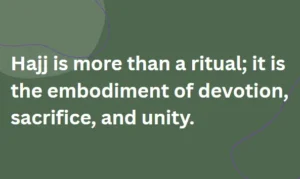The Quran, the sacred text of Islam, is considered by Muslims to be the literal word of God (Allah) revealed to the Prophet Muhammad (PBUH) over a span of 23 years. This divine revelation serves as a comprehensive guide for life, addressing everything from theology and spirituality to ethics, law, and guidance for personal conduct. For Muslims, the Quran is not just a religious book, it is the ultimate source of wisdom, instruction, and spiritual connection to Allah.
To fully understand the essence of the Quran, it is crucial to explore its core concepts. In this blog, we will discuss the fundamental principles that shape the Quran and its teachings.
1. Tawhid: The Oneness of God
At the very heart of the Quran lies the concept of Tawhid, which refers to the oneness and singularity of God (Allah). The Quran repeatedly emphasizes that Allah is the only true God, who has no partners, no associates, and no equals. This foundational belief is a central tenet of Islam, which shapes a Muslim’s understanding of the universe, life, and their relationship with the Creator.
The concept of Tawhid is highlighted in many verses, including the opening chapter, Surah Al-Fatiha, and in Surah Ikhlas (112:1-4), which says: “Say, ‘He is Allah, [Who is] One, Allah, the Eternal Refuge. He neither begets nor is born, nor is there to Him any equivalent.”
This assertion underscores the absolute unity of God in the Quran, with no room for division or multiplicity in divine authority.
2. Prophethood: The Role of Prophets in Delivering Divine Messages
Another central concept of the Quran is the role of the Prophets. Prophets were chosen by Allah to deliver His message to humanity, guiding them to live righteous lives and follow divine commandments. The Quran mentions numerous prophets, including Adam, Noah, Abraham, Moses, Jesus, and Muhammad (PBUH). Each of these prophets was sent with a specific mission to guide their people, urging them to worship God alone, live justly, and adhere to moral conduct.
The Quran emphasizes the continuity of prophethood, with Muhammad (PBUH) being regarded as the final prophet, and the Quran itself is considered the final and most complete revelation from God. As stated in Surah Al-Ahzab (33:40): “Muhammad is not the father of any of your men, but [he is] the Messenger of Allah and the Seal of the Prophets.”
3. Revelation: The Quran as Divine Guidance
The Quran is considered by Muslims to be the unaltered and eternal word of God, revealed in stages to the Prophet Muhammad over a period of 23 years, beginning in 610 CE. The method of revelation involved the angel Jibreel (Gabriel) transmitting the words of Allah to Muhammad (PBUH), who would then recite them to his companions. These revelations were later compiled into the Quran as we know it today.
In the Quran, Allah is described as the ultimate source of knowledge and guidance. The text is not just a collection of divine laws or stories but a comprehensive framework for leading a morally sound and spiritually fulfilling life. The Quran acknowledges the revelations that came before it, including the Torah and the Gospel, but asserts that the Quran is the final and most complete guidance for humanity.
4. Divine Mercy and Justice
One of the key concepts of the Quran is the balance between Allah’s Mercy and Justice. While the Quran frequently speaks of Allah’s infinite mercy, love, and forgiveness, it also emphasizes His justice and the accountability of individuals on the Day of Judgment. The Quran stresses that Allah is compassionate and forgiving, but He is also just and will reward or punish individuals based on their actions.
Surah Az-Zumar (39:53) illustrates Allah’s mercy: “Say, ‘O My servants who have harmed yourselves by your own actions, do not despair of Allah’s mercy. Allah forgives all sins; He is truly the Most Forgiving, the Most Merciful.”
However, the Quran also warns against those who reject faith or act unjustly. In Surah Al-Baqarah (2:286), it states: “Allah does not burden a soul beyond that it can bear.”
This conveys the notion of divine justice, where individuals are judged based on their intentions and actions in accordance with the guidance provided in the Quran.
5. The Afterlife: Life Beyond the World
The Quran places great emphasis on the Afterlife (Akhirah), describing it as a reality that follows this life. The Quran teaches that humans will be resurrected on the Day of Judgment, where everyone will be held accountable for their actions. Those who have followed Allah’s guidance and lived righteous lives will be rewarded with eternal paradise (Jannah), while those who have rejected faith or committed evil deeds will face punishment in hell (Jahannam).
The Quran presents the afterlife as an essential aspect of human existence, urging believers to live with the consciousness that their actions in this life will determine their eternal fate. In Surah Al-Imran (3:185), it states: “Every soul will taste death, and you will only be given your reward in full on the Day of Resurrection. So, whoever is drawn away from the Fire and admitted to Paradise has attained [his desire]. And what is the life of this world except the enjoyment of delusion?”
6. Guidance for Ethical and Moral Conduct
The Quran is filled with instructions for ethical and moral conduct. It provides guidance on how individuals should behave in their daily lives—towards themselves, others, and society. Key ethical concepts in the Quran include honesty, kindness, justice, patience, charity, and humility.
For example, the Quran commands Muslims to help those in need, care for orphans, and be just in their dealings with others. Surah Al-Baqarah (2:177) encourages righteousness, saying: “It is not righteousness that you turn your faces toward the East or the West, but righteousness is in one who believes in Allah, the Last Day, the Angels, the Book, and the Prophets…”
Additionally, the Quran emphasizes the importance of maintaining justice and fighting oppression. It repeatedly calls for compassion towards others, especially the poor, the oppressed, and those in need of help.
7. The Quran and Its Miraculous Nature
Muslims believe that the Quran is a miracle in itself. Its linguistic beauty, style, depth, and structure are regarded as unparalleled. The Quran challenges humankind to produce something similar to it, asserting its uniqueness and divine origin. In Surah Al-Baqarah (2:23), it says: “And if you are in doubt about what We have sent down upon Our Servant [Muhammad], then produce a surah the like thereof and call upon your witnesses other than Allah, if you should be truthful.”
The Quran’s impact on its readers is profound, with many Muslims dedicating their lives to memorizing it in its original Arabic language. The memorization and recitation of the Quran (Tajweed) is considered a highly revered practice, keeping the sacred text alive across generations.
8. The Five Pillars of Islam: Practical Application of Quranic Teachings
The Quran serves as the foundation for the Five Pillars of Islam, which are the fundamental acts of worship and practice for Muslims. These pillars are:
- Shahada (Faith): The declaration of faith in the oneness of God and the prophethood of Muhammad (PBUH).
- Salah (Prayer): The five daily prayers that are prescribed in the Quran as a means of maintaining a direct connection with Allah.
- Zakat (Charity): Giving a portion of one’s wealth to help the poor and needy, as prescribed in the Quran.
- Sawm (Fasting): Fasting during the month of Ramadan, as commanded in the Quran, to develop self-control and empathy for the less fortunate.
- Hajj (Pilgrimage): The pilgrimage to Mecca, which is a physical and spiritual journey undertaken by Muslims, as mentioned in the Quran.
Conclusion
The Quran is not just a book of religious laws and guidelines—it is a comprehensive and timeless guide to living a righteous and meaningful life. The key concepts of Tawhid, prophethood, divine justice, the afterlife, ethical conduct, and the miraculous nature of the Quran are foundational to understanding its essence. These concepts are intertwined to form the blueprint for a life that is in harmony with the will of God. By studying and reflecting on the Quran, Muslims are reminded of their purpose in life and their ultimate goal—proximity to Allah and eternal success in the afterlife.






